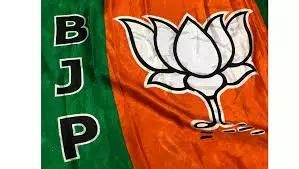
New Delhi: As the Jharkhand Assembly elections draw closer, the BJP is going all out in its bid to win over the tribal voters, who have traditionally supported the JMM. Besides pushing the anti-corruption and anti-Bangladeshi infiltration narratives, the saffron party is also banking heavily on the popularity of Prime Minister Narendra Modi, who is set to start campaigning in the tribal state on Wednesday.
The return of former chief minister Babulal Marandi to the BJP fold could be a game changer for the BJP’s poll prospects in Jharkhand, as he wields substantial influence among tribal communities. The joining of another influential tribal leader Champai Soren, who defected from the JMM, works to the advantage of the BJP. Both leaders are reinforcing the BJP’s appeal in the tribal communities.
In this high-stakes political battle, the issue of Bangladeshi and Rohingya infiltration has taken centerstage in the BJP’s campaign. Senior BJP leaders, including Mr Modi and Union home minister Amit Shah, have highlighted illegal migrants as a pressing concern, emphasising their impact on the tribal regions of Santhal Parganas and Kolhan region.
Assam chief minister and BJP state co-in-charge Himanta Biswa Sarma has claimed that unchecked migration has turned parts of Santhal Pargana into “mini Bangladesh”, altering local demographics and threatening tribal communities.
The BJP’s strategists have made this topic central to their campaign messaging, openly accusing the JMM of encouraging immigration to build its votebank.
The BJP also seeks to capitalise on an anti-incumbency wave against the ruling JMM-led alliance. While the BJP is focusing on an anti-corruption narrative, some strategists within the party are wary of a potential “sympathy factor” favouring chief minister Hemant Soren.





